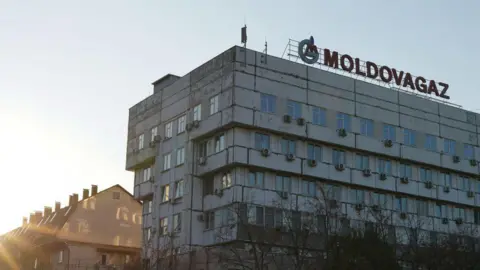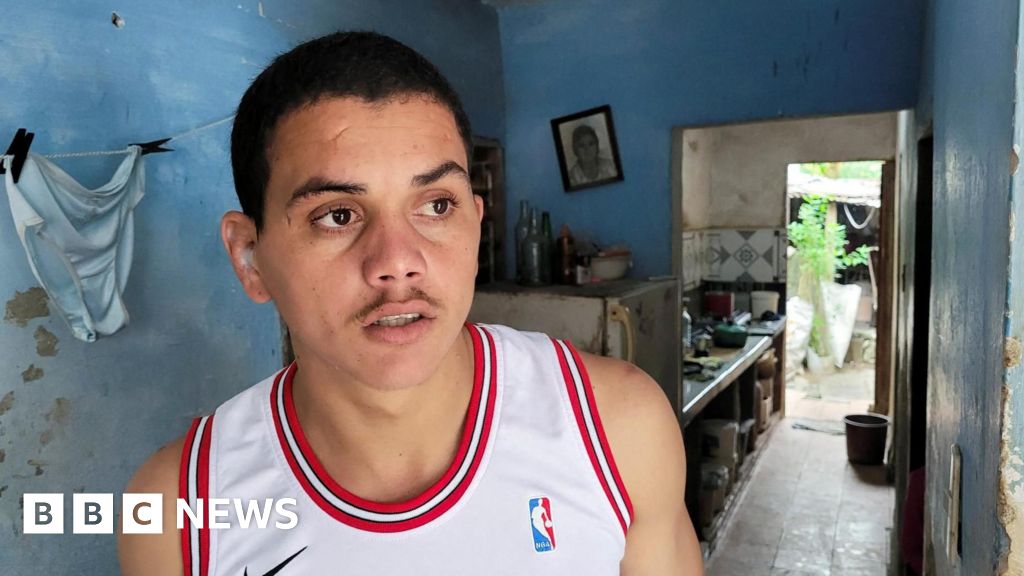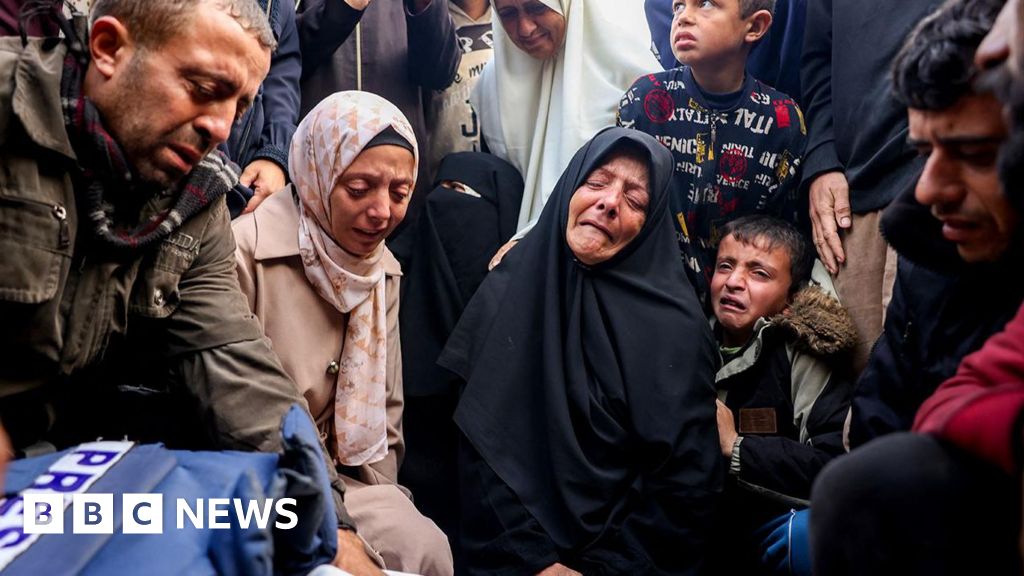ARTICLE AD BOX

 Getty Images
Getty Images
On New Year's Day, Russian gas stopped flowing through Ukraine.
Kyiv is calling it a "historic" day as its refusal to extend a transit agreement with Russia's Gazprom has halted the return flow of cash to fund the full-scale invasion of Ukraine
But in neighbouring Moldova, the move threatens to cause a crisis.
Heat off in Transnistria
In Transnistria, a separatist region of eastern Moldova loyal to Moscow, the year began with only hospitals and critical infrastructure being heated, not houses.
"The hot water was on until about 2am, I checked. Now it's off and the radiators are barely warm," Dmitry told the BBC by phone from his flat in the enclave.
"We still have gas, but the pressure is very low - just what's left in the pipes."
"It's the same everywhere."
Transnistria split from the rest of Moldova in a short war as the Soviet Union fell apart. It still has Russian troops on its soil and an economy that's fully dependent on Russian gas, for which the authorities in Tiraspol pay nothing.
"They just have a file, where it says how much the debt is each month," explains Jakub Pieńkowski, of the Polish Institute of International Affairs, PSIM. "But Russia is not interested in asking for this money."
Suddenly, that lifeline via Ukraine has been cut.
In some Transnistrian towns, the authorities are setting up "heating points" and there are hotlines for help finding firewood. Families have been advised to gather in one room for warmth and seal cracks in the windows and doors with blankets.
New Year's Day in the enclave brought sunshine but the temperature overnight is forecast to fall below 0C.
"It's chilly now inside the flat," local resident Dmitry says. "And we don't know what frost January will bring."
Blackout threats
The electricity is still flowing, for now.
But Transnistria's main power plant in Kurchugan is already being fuelled by coal instead of Russian gas and the authorities say there's only enough of that for 50 days.
That means problems for the rest of Moldova, which gets 80% of its electricity from Kurchugan.
The government in Chisinau says it has enough gas to heat the country until spring and it will switch to buying electricity from Europe, but that means a giant hike in costs.
A state of emergency was introduced last month and businesses and citizens have been told to reduce consumption with the country braced for power cuts.
The abrupt halt in gas via Ukraine affects Slovakia and Hungary, too.
Both have governments sympathetic to Moscow that have been far slower than others in the EU to wean themselves off Russian fuel and stop funding Russia's war. Paying more for alternative supplies will squeeze their budgets.
But Moldova is poorer and less stable - a prolonged crisis could have serious economic and political consequences.
That may well be what Moscow wants.
Russia could supply its allies in Transnistria via Turkey, albeit at a higher cost, which would mean electricity for all Moldova.
Instead, Gazprom claims it has halted supplies because Chisinau is almost $700m in debt. The Moldovan government says an international audit put the true amount at around $9m which has mostly been repaid.
Playing politics?
"We're treating this not as an energy crisis but a security crisis, induced by Russia to destabilise Moldova both economically and socially," Olga Rosca, foreign policy adviser to Moldova's president, told the BBC.
"This clearly is a shaping operation ahead of parliamentary elections in 2025, to create demand for a return of pro-Russian forces to power."
Relations between Moldova and Moscow are tense.
Once part of the USSR, the country has begun talks to join the EU and turned even more firmly away from Russia since its full-scale invasion of Ukraine.
President Maia Sandu was re-elected last year despite evidence of a massive campaign against her led from Moscow.
It hasn't stopped.
Before her inauguration, Russia's external SVR intelligence agency issued a bizarre statement falsely claiming she planned to take back Transnistria by force to restore energy supplies. It painted the president as "frenzied" and "emotionally unstable".
Analyst Jakub Pieńkowski agrees that the Kremlin is exploiting Kyiv's decision to ban the transit of Russian gas.
"It's a reason to make some political and social issues in Moldova," he argues. "Electricity prices have already risen about six times in three years and people are angry."
As the humanitarian situation in Transnistria worsens, pressure on Chisinau will grow. But Tiraspol is refusing all help, even generators.
"They will create a narrative of Chisinau freezing Transnistria into submission," Olga Rosca believes.
And even if Tiraspol opts to buy gas from elsewhere, the hit to its economy could be disastrous.
"The prices here would shoot up, including for heating and food. But pensions here are tiny, and there's no work," Dmitry told me, from Bendery in the buffer zone on the edge of Transnistria.
He says people there are barely "clinging on" as it is. Now life elsewhere in Moldova will also get harder.
"Russia can wait for the elections and then parties who are not pro-EU will probably win," Jakub Pieńkowski predicts.
"Because Maia Sandu can talk about EU accession. But what use is that if people don't have money for electricity or gas?"
"This is the aim for Russia."

 2 weeks ago
7
2 weeks ago
7








 English (US) ·
English (US) ·